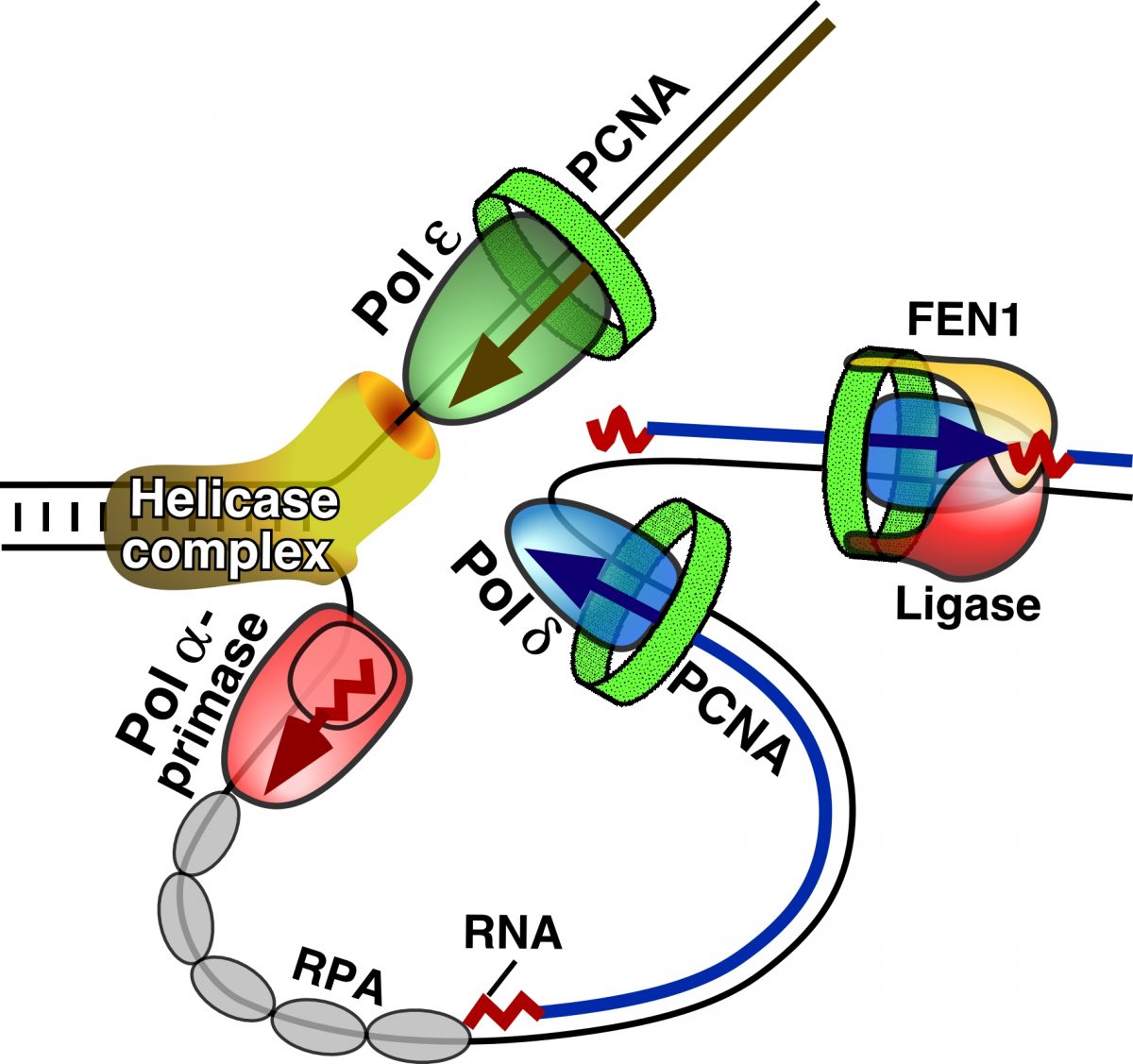Replication Fork
 In our DNA replication studies, we aim to understand the functions of nuclear DNA polymerases at the replication fork, with a focus on lagging strand DNA replication. The plasticity of the DNA replication fork in response to altering conditions and challenges manifests itself at the level of Okazaki fragment maturation. Key factors involved in this process are DNA polymerase δ, the flap endonuclease FEN1, and DNA ligase. Coordinated by interactions with the replication clamp PCNA, these four factors form the core machinery for maturation of the majority of Okazaki fragments. Occasionally, maturation by the core machinery does not suffice, and additional factors such as the DNA helicase Pif1 and the nuclease/helicase Dna2 are involved in the maturation process. Our biochemical focus is on the protein-protein interactions important for coordinated maturation, and on the iterative hand-off of maturation intermediates between the enzymes that function in the pathway. Our genetic studies complement the biochemistry by the analysis of targeted mutations in the genes for these factors. This coordinated approach allows us to probe the dynamics of lagging strand DNA replication in the cell and get at an understanding of its regulation.
In our DNA replication studies, we aim to understand the functions of nuclear DNA polymerases at the replication fork, with a focus on lagging strand DNA replication. The plasticity of the DNA replication fork in response to altering conditions and challenges manifests itself at the level of Okazaki fragment maturation. Key factors involved in this process are DNA polymerase δ, the flap endonuclease FEN1, and DNA ligase. Coordinated by interactions with the replication clamp PCNA, these four factors form the core machinery for maturation of the majority of Okazaki fragments. Occasionally, maturation by the core machinery does not suffice, and additional factors such as the DNA helicase Pif1 and the nuclease/helicase Dna2 are involved in the maturation process. Our biochemical focus is on the protein-protein interactions important for coordinated maturation, and on the iterative hand-off of maturation intermediates between the enzymes that function in the pathway. Our genetic studies complement the biochemistry by the analysis of targeted mutations in the genes for these factors. This coordinated approach allows us to probe the dynamics of lagging strand DNA replication in the cell and get at an understanding of its regulation.